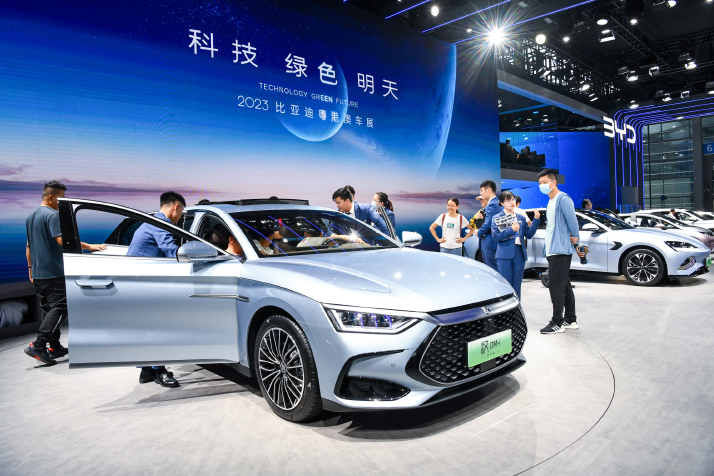| Fact Check |
| NEV market calls for technological boost | |
|
|
 Deep into the winter, owners of new-energy vehicles (NEVs) in regions with chilly weather across China, as always, begin to complain that NEV range shrinks sharply—by about 40 percent—in the cold. These reports are compatible with the results of some authoritative tests on NEV battery performance. While these vehicles have a range of around 600 km on a single charge in the warmer months, in winter, it usually falls to around 360 km or so. Anxiety triggered by shortened ranges in winter is rekindling NEV owners' missing of traditional fuel vehicles (TFV). Whether TFVs should be banned on the streets has been a controversial topic for years. In response to the government's green development scheme, particularly its commitment that China will peak its carbon emissions before 2030 and achieve carbon neutrality before 2060, some auto companies are already on track to stopping TFV production. In March 2022, BYD announced that it had completely ceased manufacturing TFVs. The company joined the world's top 10 automakers by sales in the first half of 2023 and has become the largest plug-in electric vehicle manufacturer in the world. BAIC Motor and Changan Auto, another two leading carmakers in China, have also announced their plans to end TFV sales in 2025. China has been first in the world for NEV production and sales for eight consecutive years and it has been the largest NEV exporter since 2021. NEV technology, however, is still less mature than that of TFVs, and NEV owners' grievances about range in winter reveal improvements are still urgently needed. This is also the major reason why TFVs still play the dominant role in the auto market. According to the China Association of Automobile Manufacturers, between January and November, the production and sales of NEVs in China reached 8.42 million and 8.3 million, respectively, compared with 27.11 million and 26.93 million for TFVs. The auto industry will inevitably embrace a new round of technological revolution featuring electrification, networking, intelligence and low carbon. But TFVs will remain the preferred choice for many car buyers before the range issue is solved.  A BYD new-energy vehicle on display at the 27th Guangdong-Hong Kong-Macao Greater Bay Area International Auto Show in Shenzhen, Guangdong Province, on June 16 (XINHUA)
Until NEV power cells are capable of meeting consumers' expectations, particularly in winter, the phase-out of TFVs from the market must be conducted in a calculated manner. The green transition of the automakers needs time and support. Phasing out existing TFVs will also require consultation with owners of such vehicles. Forcing TFVs out too soon would cost both the auto industry and consumers greatly. In March 2019, the southern island province of Hainan released a detailed plan for the development of NEVs. Shenzhen in Guangdong Province and Taiyuan in Shanxi Province have already completely phased out gas-powered public buses and taxis. Some other provinces and cities have also worked out policies to completely replace their current biofuel-engined official vehicles with electric or hybrid vehicles. According to China Association of Automobile Manufacturers, the share of NEVs in the Chinese auto market reached 30.8 percent in the first 11 months of 2023. In line with the market share growth rate over the past few years, it's calculated that TFVs in China will peak their greenhouse gas emissions by 2026. Formulating a timetable for banning TFVs sends a clear signal to the market that China is committed to the goal. But the speed of technological breakthroughs in the NEV sector will decide how soon the process will be completed. Copyedited by G.P. Wilson Comments to lanxinzhen@cicgamericas.com |
|
||||||||||||||||||||||||||||
|
